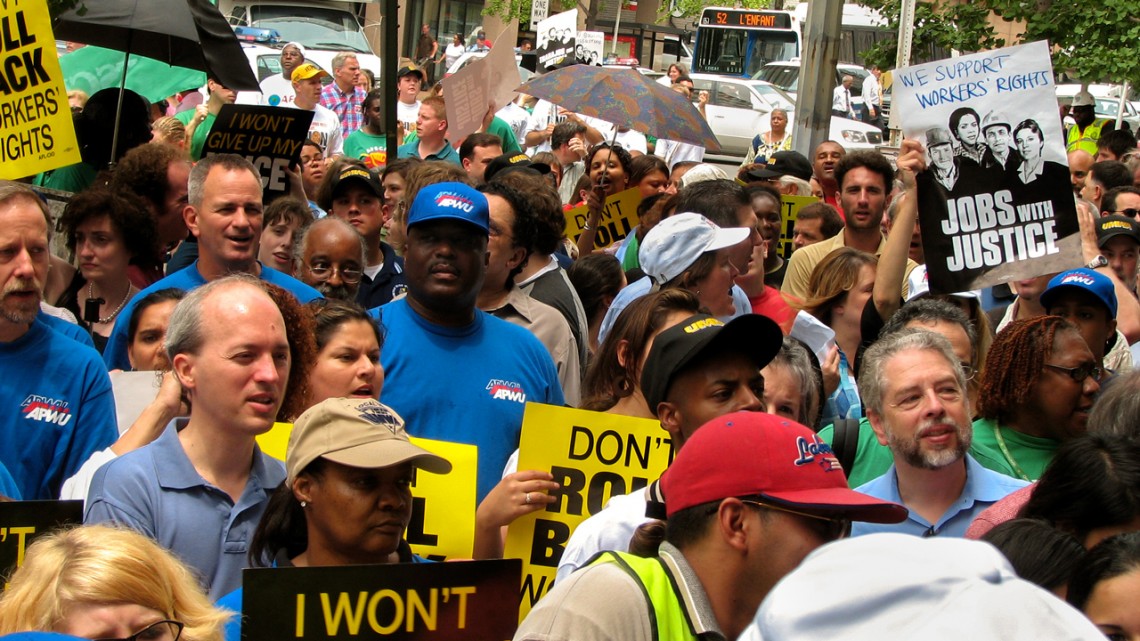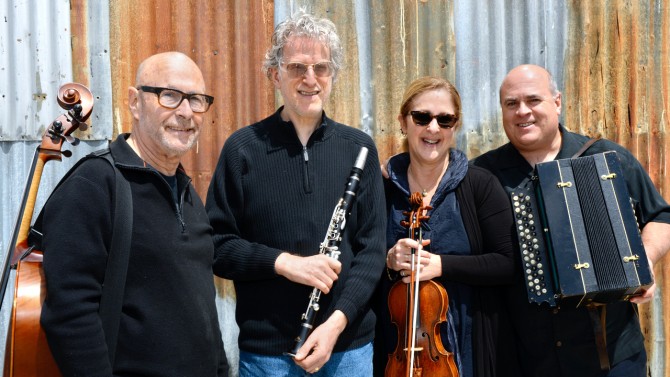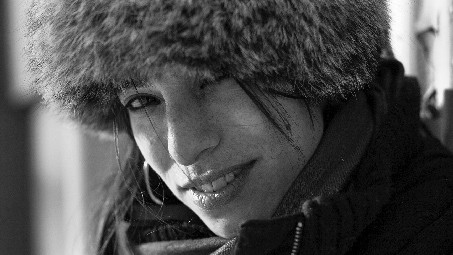
Union representatives, social justice organizations and labor leaders will participate in the 17th annual ILR Labor Roundtable Nov. 15.
Things to Do, Nov. 15-22, 2019
By Daniel Aloi
Labor Roundtable
Labor leaders, union representatives and social justice organizations will take part in the 17th Annual ILR Labor Roundtable, Nov. 15, 1-5 p.m. in the Statler Hotel’s Carrier Ballroom.
The event is open to all Cornell students, as well as students from Tompkins Cortland Community College and Ithaca College. RSVP/register online.
Participants include Michael Berger of the Director’s Guild of America; Sussie Lozada of Unite HERE Local 100; Bradford Murray and Tonya Stuart Rinehart from the American Federation of Teachers; Kim Frost from Pride at Work; and Alexander Feltham of the AFL-CIO.
Through in-depth conversations and small group discussions, the annual roundtable exposes students to current trends in the labor movement and its fundamental role in bringing about social change, as well as career opportunities including “social concern” positions in the public service, education, research/policy, nonprofit and labor sectors.
Klezmer concert
The klezmer trio Veretski Pass, currently in residency at Cornell, collaborates with Joel Rubin in “The Magid Chronicles,” Nov. 17 at 7:30 p.m. in Anabel Taylor Auditorium, Anabel Taylor Hall. The concert is open to the public, with a $10 suggested donation at the door. No one will be turned away.
The concert will feature pieces collected by Jewish ethnographer Sofia Magid, who worked to document Jewish music in Belarus and Ukraine during Stalin’s regime in the 1920s and ’30s. Her 600 recordings include rare examples of women’s songs and instrumentals from these regions.
The program also includes music collected by Magid’s counterpart in Kyiv, Moyshe Beregovski, and others; and music from Turkey, Greece and Romania.
Rubin is a master klezmer clarinetist who performs internationally and is a leading scholar of Ashkenazi Jewish Klezmer music. He founded the Cornell University Klezmer Ensemble in 2003.
Veretski Pass specializes in Old World music of the Carpathians, where Jewish klezmorim musical traditions met those of Romania, Ottoman Turkey, Magyar Hungary, Ukraine and other regions. The trio is Cookie Segelstein on violin and viola; Josh Horowitz on accordion, cimbalom and piano; and Stu Brotman on bass, basy (cello), tilinca (shepherds’ flute) and baraban (bass drum).
Event co-sponsors include the Jewish Studies Program and the Mann Professorship in Modern Jewish Studies Research Fund; the Departments of Music, History, Anthropology and Near Eastern Studies; the Society for the Humanities, Flora Rose House, Keeton House and Sara Pines.
Critical languages abroad
Francine Barchett ’20 and other recent Cornell alumni of the Critical Language Scholarship Program (CLS), will discuss the program at an information session Nov. 18, 4:30-6 p.m. in G08 Uris Hall.
CLS is a fully funded study-abroad program sponsored by the U.S. Department of State, allowing U.S. students to spend the summer learning one of 15 “critical languages.”
The session is hosted by the Mario Einaudi Center for International Studies as part of International Education Week.
Visiting filmmaker
Artist and filmmaker Malena Szlam visits Cornell Cinema to screen and discuss her work, Nov. 20 at 7 p.m. in Willard Straight Theatre.
Born in Chile and based in Montreal, Szlam works at the intersection of cinema, installation and performance. Her time-based works and films edited in-camera explore the relationship between the natural world, perception and the intuitive process.
“Malena Szlam: Inexistent Time” will feature seven short films, including “Altiplano” (2018), which Film Comment said “ranks among the most striking landscape films of recent years and, indeed, calls for a revision of how we talk about landscape in cinema.”
Shadow puppets, symphony concert
Indonesian artists Gusti Sudarta and Darsono Hadiraharjo will perform excerpts from traditional Balinese and Javanese shadow puppet theater, Nov. 21 at 7 p.m. at the Herbert F. Johnson Museum of Art. They will be accompanied by the Cornell Gamelan Ensemble and guest musicians Gusti Nyoman Darta and Bethany Collier.
Sudarta and Hadiraharjo are from Bali and Java, respectively. They also will create “Migrating Shadows,” Nov. 23 at 1 p.m., a multimedia production moving through the museum, featuring Indonesian traditional art forms of gamelan, dance and wayang (shadow puppetry). Sudarta and Hadiraharjo will be joined by Christopher J. Miller, Kevin Ernste and graduate student composers Sergio Cote Barco, Miles Jefferson Friday and Piyawat Louilarpprasert from the Department of Music.
Also this week: The Cornell Symphony Orchestra, conducted by Katherine Kilburn, will perform Nov. 17 at 3 p.m. in Bailey Hall, with a concert program featuring Emily Cooley’s “Argo” and Johannes Brahms’ Symphony No. 4 in E Minor.
All performances are free and open to the public and presented by the Department of Music, with funding from the Cornell Council for the Arts and co-sponsorship from the Johnson Museum, the Department of the History of Art and Visual Studies, and the Southeast Asia Program.
Storytelling with data
The Milstein Program in Technology and Humanity hosts a two-day Data Visualization Workshop with Anna Feigenbaum, Nov. 18 and 20, 4:45-7:15 p.m. at the Tatkon Center for First-Year Students, Room 3330. The workshop is free and open to the public; food will be provided.
The hands-on workshop will explore data storytelling. The first day focuses on how data storytelling and your intended audience can be used to create a narrative. Participants will engage in activities to create their own data stories, and explore how charts, symbols and colors can influence the narrative.
On the second day, students will present their own data visualizations for a constructive group critique, learn how to “humanize” them, and refine their final product for their portfolios.
Feigenbaum teaches multimedia journalism at Bournemouth University in England, where she convenes the Civic Media Hub and BU Datalabs project. She has been a fellow at the Rutgers University Center for Historical Analysis, the London School of Economics and Political Science, and the Institute for Historical Research at the University of London.
Resilience in Syria
Hope and safety are found underground in war-torn Syria, inside a subterranean hospital where women do their jobs independent of the oppressive patriarchal culture above, in “The Cave,” screening Nov. 21-22 at Cornell Cinema. Admission is free; a post-screening discussion will be held Nov. 21.
Directed by Oscar nominee Feras Fayyad (“Last Men in Aleppo”), the 2019 documentary is a portrait of courage, resilience and female solidarity. Pediatrician and managing physician Amani Ballour and her colleagues claim their right to work as equals alongside their male counterparts, amid daily bombardments, chronic supply shortages and the constant threat of chemical attacks.
Also showing: The 1936 propaganda camp classic “Reefer Madness,” Nov. 21-22, with extras including vintage trailers, commercials and ephemera from the American Genre Film Archive vaults.
Literary Carnival traditions
Scholar Richard Rambuss explores the influence of literature on efforts by Anglo-American society to appropriate and “elevate” Carnival traditions in multicultural New Orleans in “Milton, Spenser, Shakespeare, and Carnival – New Orleans Style,” Nov. 21 at 4:30 p.m. in the A.D. White House Guerlac Room.
The 2019 Paul Gottschalk Memorial Lecture, presented by the Department of English, is free and open to the public. A reception will follow in the A.D. White House.
Rambuss will focus on the all-male, secret society Carnival organizations founded in the 19th century, starting with the Mystick Krewe of Comus, named for Milton’s masque. Their fanciful Mardi Gras pageantry had themes often derived from poetry and drama, and innovated the elaborate public parades and private balls for which Carnival in New Orleans has come to be known.
Rambuss also leads a seminar on Milton’s strange devotional poetry, “Milton’s Christ,” Nov. 22 at 11 a.m. in the English Lounge, 258 Goldwin Smith Hall. RSVP by Nov. 15.
Rambuss is the Nicholas Brown Professor of Oratory and Belles Lettres and the English department chair at Brown University. His teaching and writing encompasses early modern literature and contemporary culture, especially film. His books include “The English Poems of Richard Crashaw” and a forthcoming volume on masculinity in extreme circumstances in the work of Stanley Kubrick. His next project is “Mardi Gras Milton: The Golden Age of New Orleans Carnival and English Renaissance Literature.”
The Gottschalk Memorial Lecture was established in memory of Paul Gottschalk, Cornell professor of English, a scholar of British Renaissance literature and the author of “The Meanings of Hamlet” (1972). He died in 1977 at age 38.
Media Contact
Get Cornell news delivered right to your inbox.
Subscribe


